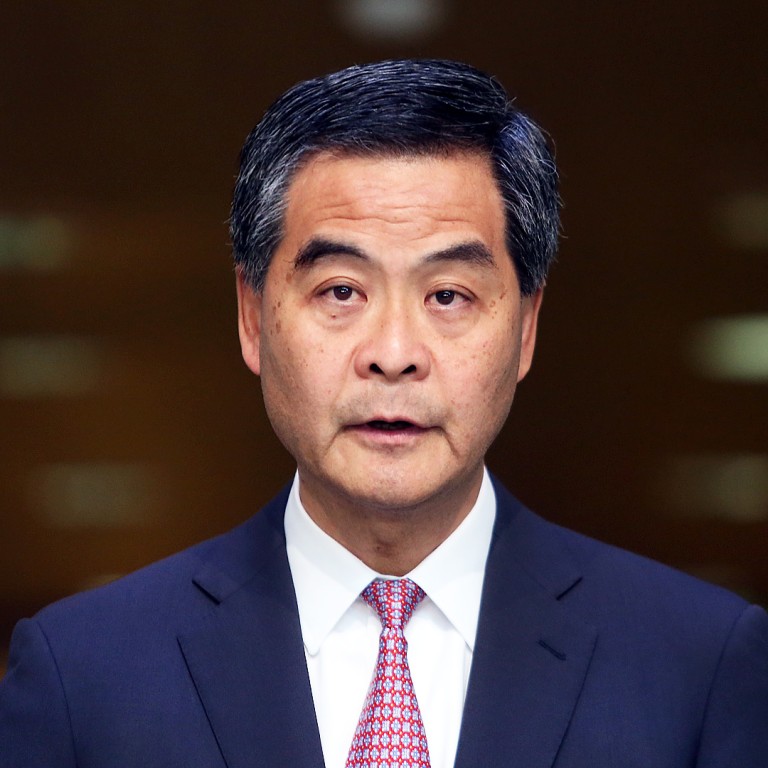
Supply-led flats strategy paying off, Leung Chun-ying says in annual work report
Chief executive's work report summarises a year of 'solid progress', with housing supply at a 10-year high and promises to tackle soaring prices
Chief Executive Leung Chun-ying says the supply-led strategy he adopted when he took office three years ago to ease the housing shortage is starting to bear fruit, with 33,000 private flats expected to be completed this year and next, a 10-year high.
Leung also pledged to "rebuild the housing ladder and play a more active role in housing through the provision of public housing" to tackle soaring prices and rents.
The targets were contained in his annual work report released yesterday, in which Leung concluded his administration had achieved "solid progress" in its work, ranging, however, from the electoral reform proposal that was defeated in the legislature last week, to attracting a record number of visitors to a flower show in March.
The report, available at the chief executive's official website, covers 10 areas, with "housing and land" taking up almost one-fifth of its 54 pages.
Leung briefly touched on the defeat of the political reform plan, concluding that the government had "finished" its work and would now "concentrate on addressing the issues of the economy and people's livelihood".
"It is expected that about 13,000 and 20,000 private housing units will be completed in 2015 and 2016 respectively, a record high in 10 years and about 70 per cent higher than the average of the past 10 years," the report read.
On public housing, the report said there would a total production of about 93,100 homes from now until 2019-20.
"Housing is one of the most important livelihood issues in Hong Kong," the report read. "The crux of the housing problem lies with inadequate supply. The government is determined to solve the problem at source by adopting a supply-led strategy and by continuously increasing supply of land and housing."
But Wong Leung-sing, an associate director at Centaline Property Agency, questioned this assertion. "Supply is not the sole factor affecting the property market. The other is demand, which can sometimes be very difficult to forecast."
He cited as an example the Housing Authority's recent sale of Home Ownership Scheme flats. More than 130,000 people had applied to compete for the 2,160 subsidised homes. But the homes went on sale on May 21, yet only 46 per cent of the flats were sold as of Friday.
"The economic outlook is uncertain and the US bank rate could increase as early as late this year. These factors can also affect buyers' desire to buy properties."
Willy Liu Wai-keung, chief executive of Ricacorp Properties, said a stable supply was also important.
Leung also highlighted the delay to the construction of the high-speed railway to Guangzhou and pledged to step up monitoring of MTR Corporation's work.
"The government will strengthen the monitoring of [the MTR] to ensure safety and reliability of railway services," the report read. "More resources have been earmarked for the Electrical and Mechanical Services Department to increase its manpower significantly, so as to enhance its regulation of the safety performance of existing railway services and new railway projects."
The chief executive also took a shot at the pan-democrats' "non-cooperation" campaign, calling it "a waste of time to the legislature and hindering government operations to the detriment of Hong Kong".
The report concluded that "the public at large is tired of" seeing filibustering in the legislature.

